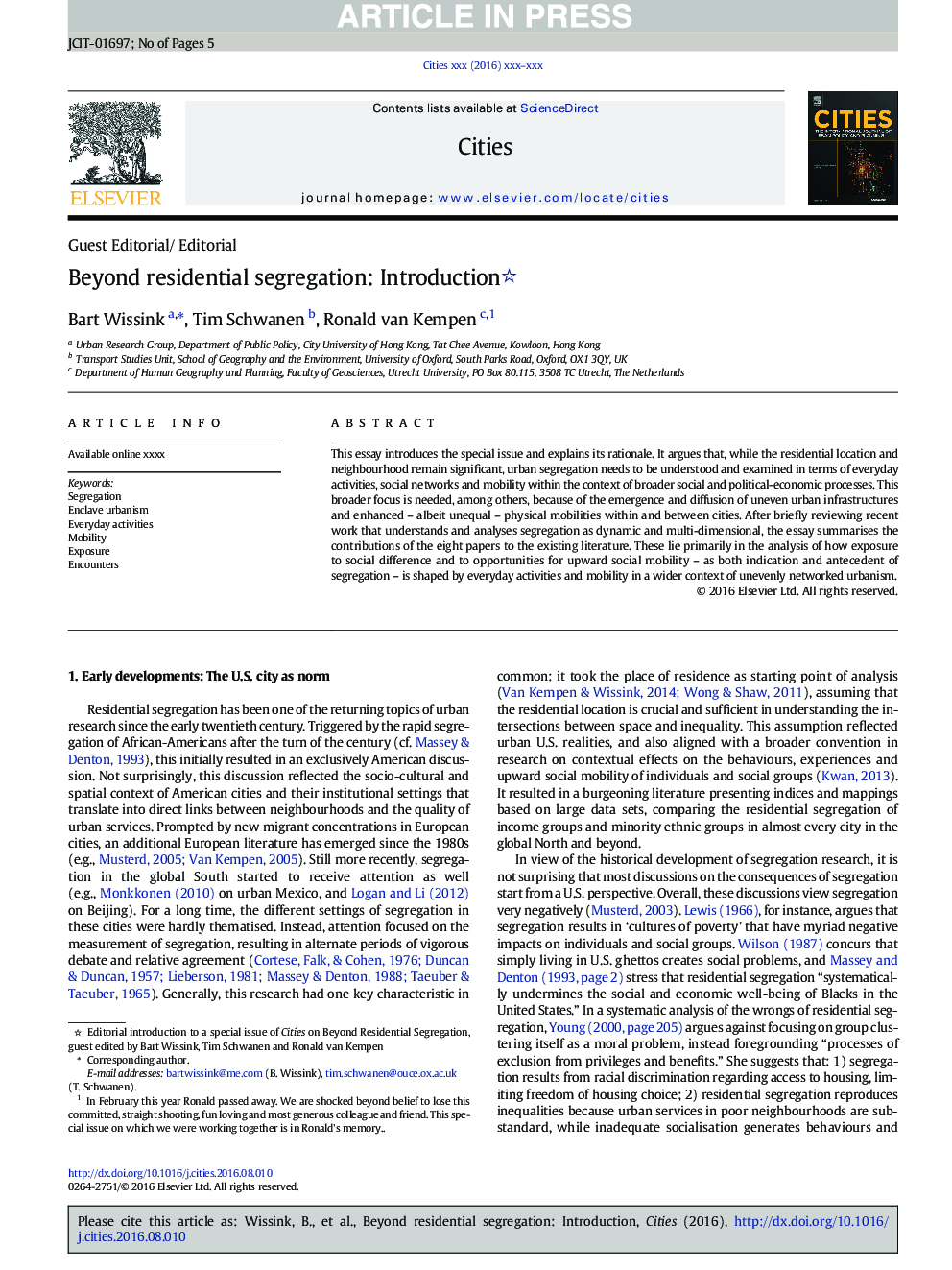| Article ID | Journal | Published Year | Pages | File Type |
|---|---|---|---|---|
| 7417900 | Cities | 2016 | 5 Pages |
Abstract
This essay introduces the special issue and explains its rationale. It argues that, while the residential location and neighbourhood remain significant, urban segregation needs to be understood and examined in terms of everyday activities, social networks and mobility within the context of broader social and political-economic processes. This broader focus is needed, among others, because of the emergence and diffusion of uneven urban infrastructures and enhanced - albeit unequal - physical mobilities within and between cities. After briefly reviewing recent work that understands and analyses segregation as dynamic and multi-dimensional, the essay summarises the contributions of the eight papers to the existing literature. These lie primarily in the analysis of how exposure to social difference and to opportunities for upward social mobility - as both indication and antecedent of segregation - is shaped by everyday activities and mobility in a wider context of unevenly networked urbanism.
Related Topics
Social Sciences and Humanities
Business, Management and Accounting
Tourism, Leisure and Hospitality Management
Authors
Bart Wissink, Tim Schwanen, Ronald van Kempen,
